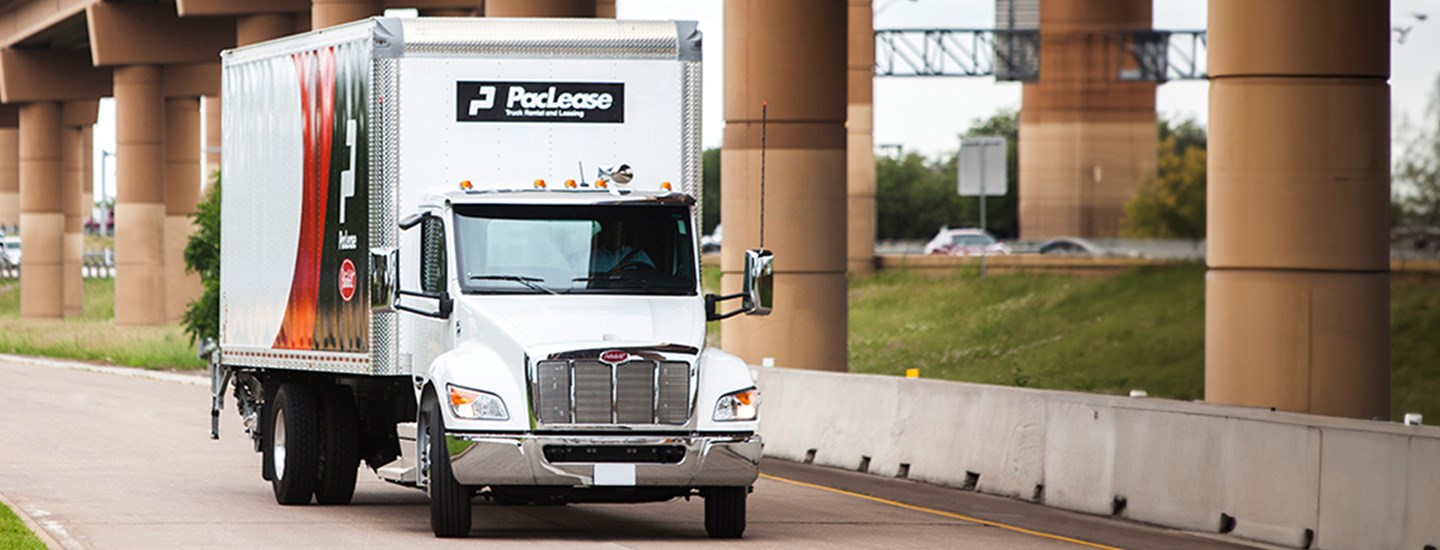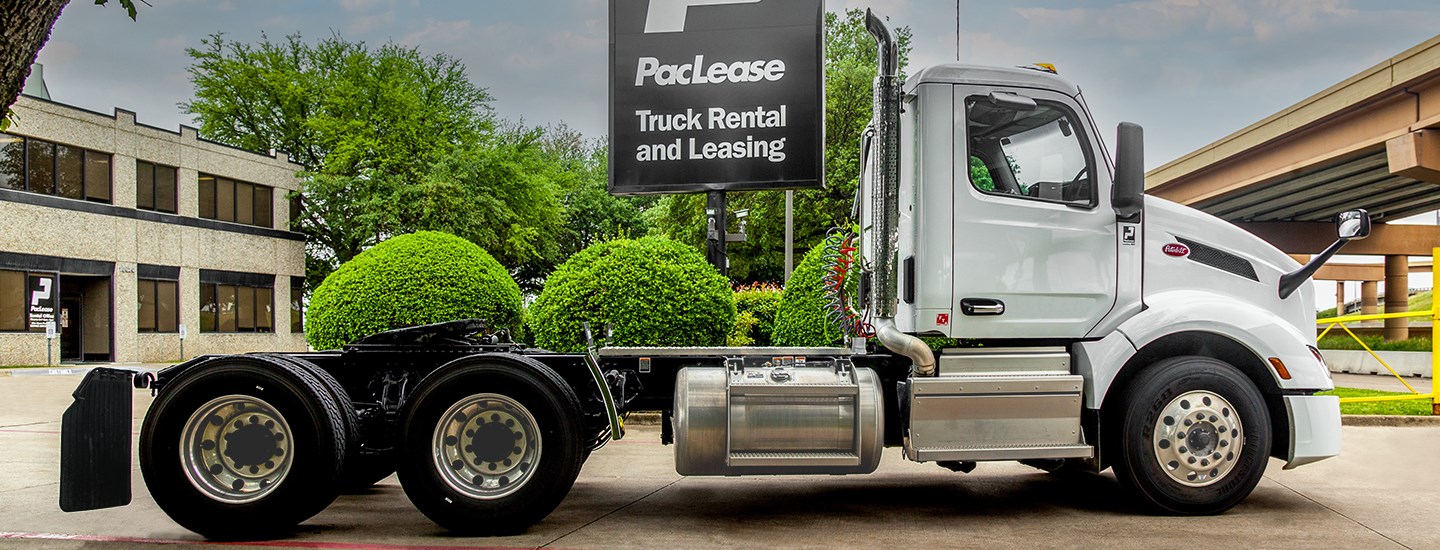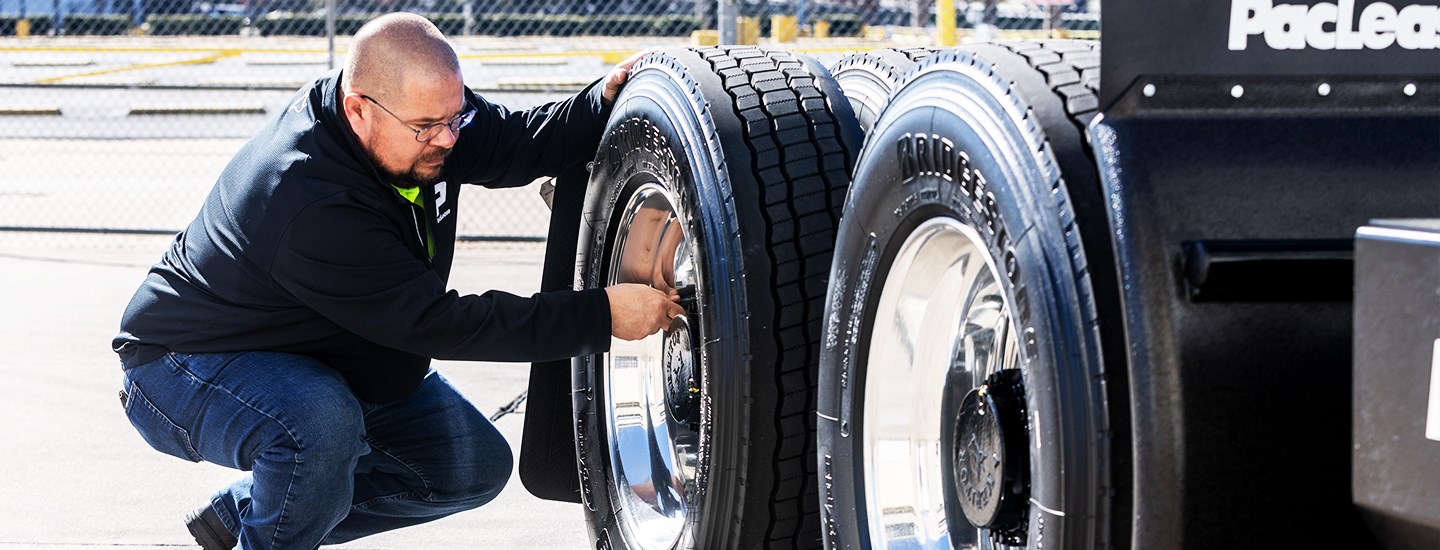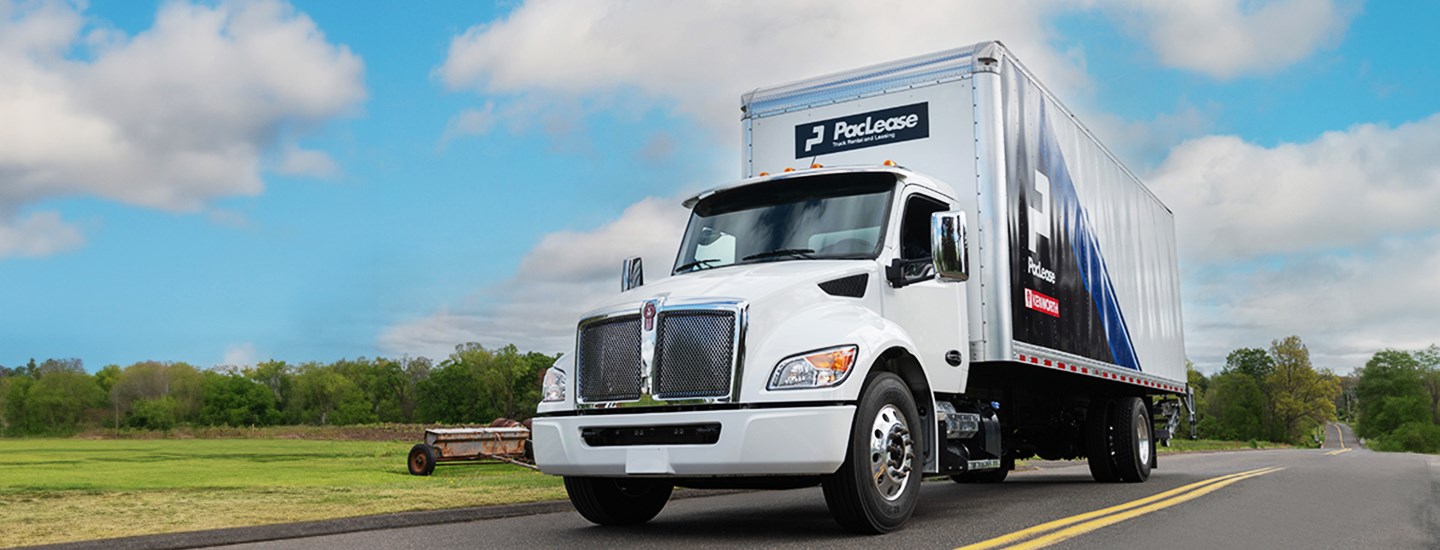November 2, 2023

What Makes Sense to You? The Decision to Lease vs Buy Trucks
By Eric Hruby, PacLease Director of Operations
Whether you have a small fleet in the early stages of fleet expansion or an established carrier with thousands of trucks on the road, there are several factors to consider regarding vehicle acquisition. For some, owning equipment outright makes the most sense. For others, leasing or a combination of owning and leasing is the best option. When deciding how to grow your fleet, it is important to consider certain things.
Navigating Current Market Conditions
With interest rates rising, financing new equipment is increasingly expensive for private fleets and trucking companies looking to add to existing trucks or replace them with new equipment. If your company becomes capital challenged with having to make a substantial down payment or pay the full amount to acquire assets, the monthly interest payments can take a toll on your bottom line.
Predicting truck operating costs such as maintenance and spare parts costs as well as forecasting customer demand, especially in this economic climate, are also challenging. For those seeking more stability in accounting, managing equipment, or more flexibility in right-sizing your fleet (ability to scale the fleet size up or down) based on demand, leasing or renting trucks is a lucrative option worth considering.
Full-service leasing is a great alternative to owning trucks for those who want simplified cost accounting, as monthly lease rates are predefined for the term, so there are no surprises or fluctuations due to unexpected maintenance costs. Lease payments are lower due to leveraging the lessor’s buying power, maintenance expertise, and resale capabilities. The lessee also avoids having to pay the entire acquisition cost outright or being left with a depreciating asset if business conditions change and they are forced to sell off equipment.
However, for companies whose primary business is trucking or those who have sufficient cash reserves, full truck ownership or operating a mixed fleet of owned and leased trucks can be considered. The following are scenarios where it makes the most sense for truck ownership:
- If you have cash to invest in new equipment.
- Plan to operate the trucks for longer than five to seven years.
- Have the experienced staff necessary to manage the proper maintenance events and can service vehicles in-house.
- Ability to manage successfully through volatile used truck market conditions. With a full-service lease, however, the residual value risk traditionally stays with the lessor.

Perks of New Equipment
Hiring and retaining good, experienced drivers is a challenge for many fleets. Fleets are taking several steps to combat this, and one of them is providing new premium equipment to drivers. This is the case with many of the leading companies as they replace their trucks every few years to keep them from aging to the point of becoming undesirable to drivers and to reduce maintenance costs. Running newer equipment also helps with brand image.
For many companies, purchasing new trucks every five to seven years is unaffordable. Full-service leasing can provide fleets the opportunity to continuously run new equipment without upfront costs and to replace trucks every three to five years, depending on the lease agreement and their business environment. The use of new equipment can help not only in recruiting and retaining drivers, but also in other areas of operations. The latest truck models are more fuel efficient and offer the latest driver safety technologies that can help reduce fuel costs and better ensure safety on the road.
However, for many companies, particularly those whose primary business is not trucking, the lower monthly payment and initial capital retained by leasing and/or renting trucks is the primary reason to lease. The money saved can instead be used to grow their primary business. Additionally, more time and energy can be spent on other core business functions instead of managing and maintaining equipment.

Managing Maintenance
For many fleets operating in over-the-road or vocational applications, truck ownership has traditionally been part of the company culture, and having complete financial control over the trucks is appealing to many fleet owners. But not all aspects of truck ownership are appealing. As technology in trucks becomes more sophisticated and difficult to maintain, it becomes increasingly difficult for those who have their own maintenance facilities and personnel to keep up with the technology and maintenance requirements to keep these assets in peak performance condition. The obtaining of necessary resources and the hiring and training personnel required to service new trucks quickly outweigh the benefits of working on equipment in-house.
For trucking companies that rely on purchasing used trucks to replace or add trucks to their fleet, leasing can serve as a substitute in this current market to avoid potential overpayments for used equipment. Because leasing involves new, and therefore more reliable trucks backed by managed maintenance from the leasing company, fleets do not have to worry about early maintenance issues occurring, as might be the case with a used truck acquisition.
Some fleets that own and lease a portion of their fleet are moving to what is known as unbundled leasing, where company-owned trucks receive the same attention to maintenance management as leased trucks, with the leasing company managing the maintenance programs. Many leasing companies offer these types of programs, and it’s an effective way to consolidate and manage maintenance resources and total cost of ownership.
Integrating Electric Vehicles
As the industry experiences a shift toward more environmentally friendly solutions and companies begin to plan how they will integrate EVs into their operations, leasing these vehicles can help introduce companies to the new technologies. With upcoming federal and state mandates requiring fleets to operate EVs, beginning the process now to electrify some vehicles will help prepare for an industry that is adopting these changes. Given this new technology and the yet-to-be-determined market resale values of these trucks, leasing EVs can help you “test” the integration of these new vehicles with less financial risk of purchasing the equipment. When you work with a leasing company, they will find any available grant money and apply it to your lease rate. Given the uncertainty about how the used EV truck market will evolve in the future, leasing can mitigate a fleet company’s risks with resale exposure at the end of the trucks’ duty cycle.
Whether it’s truck ownership, leasing, or a combination of the two, there are advantages and disadvantages to how you add or replace the trucks in your fleet. Understanding your business needs and operating costs allows you to make the right decision when it comes to vehicle acquisition.
The information provided on this article does not, and is not intended to, constitute professional or business advice. Instead, all information, content, and materials available are for general information purpose only.
Ask about PacLease Truck Rental and Leasing options by contacting an Expert.
Find a Kenworth or Peterbilt location near you, visit PacLease Locations.
For more information on Kenworth and Peterbilt New Medium-Duty Models or the PACCAR Powertrain.
For more great blogs visit PacLease Blogs.

